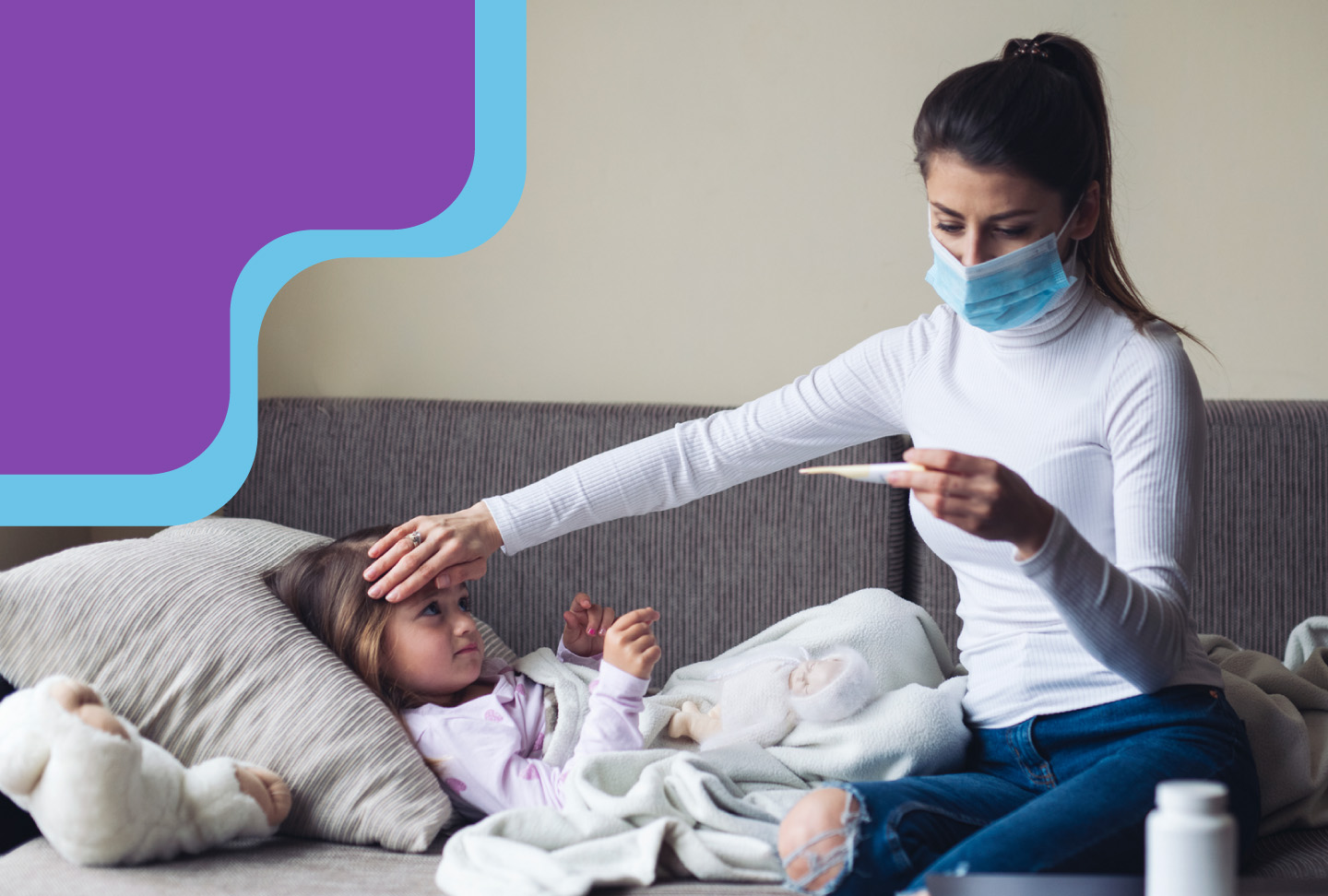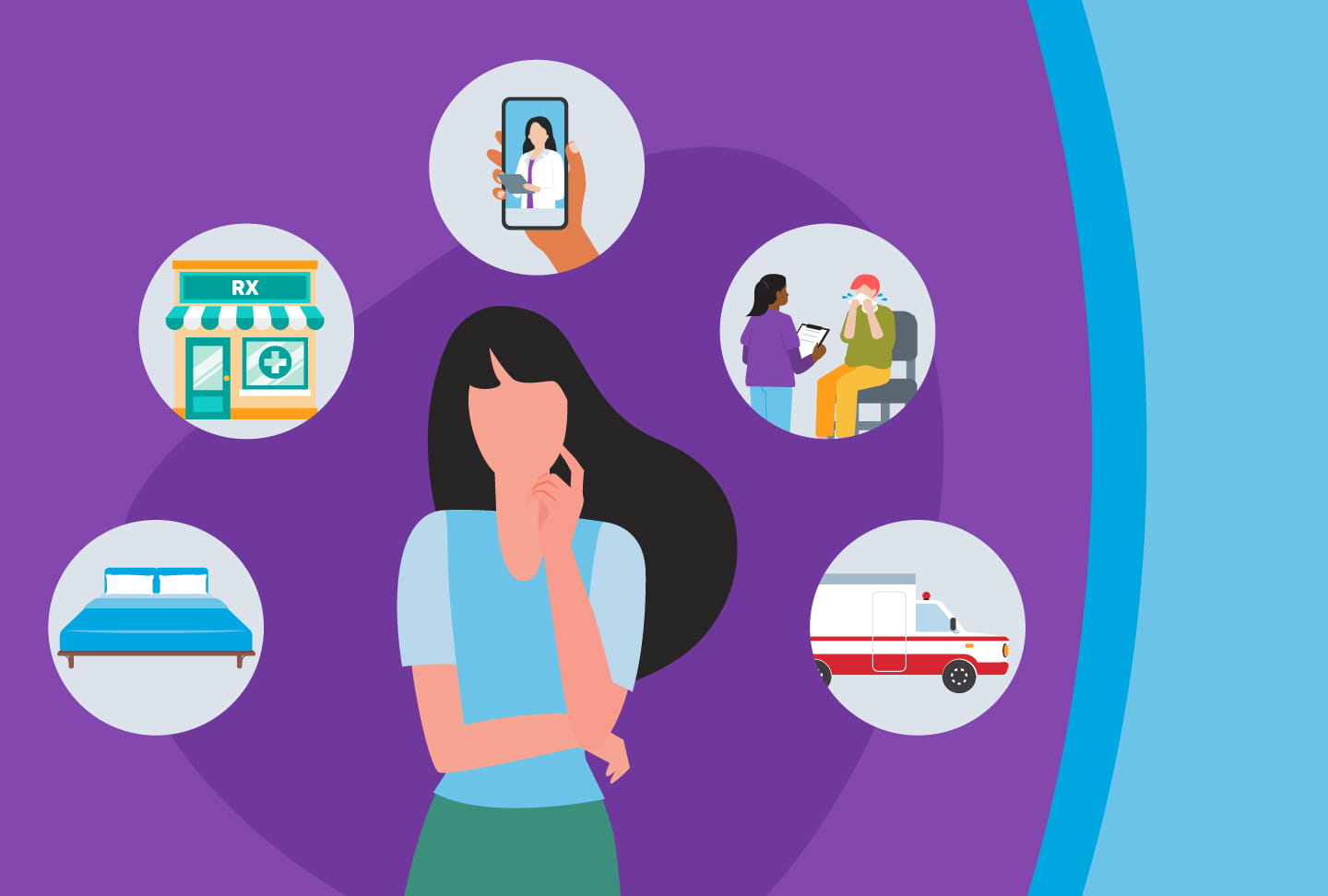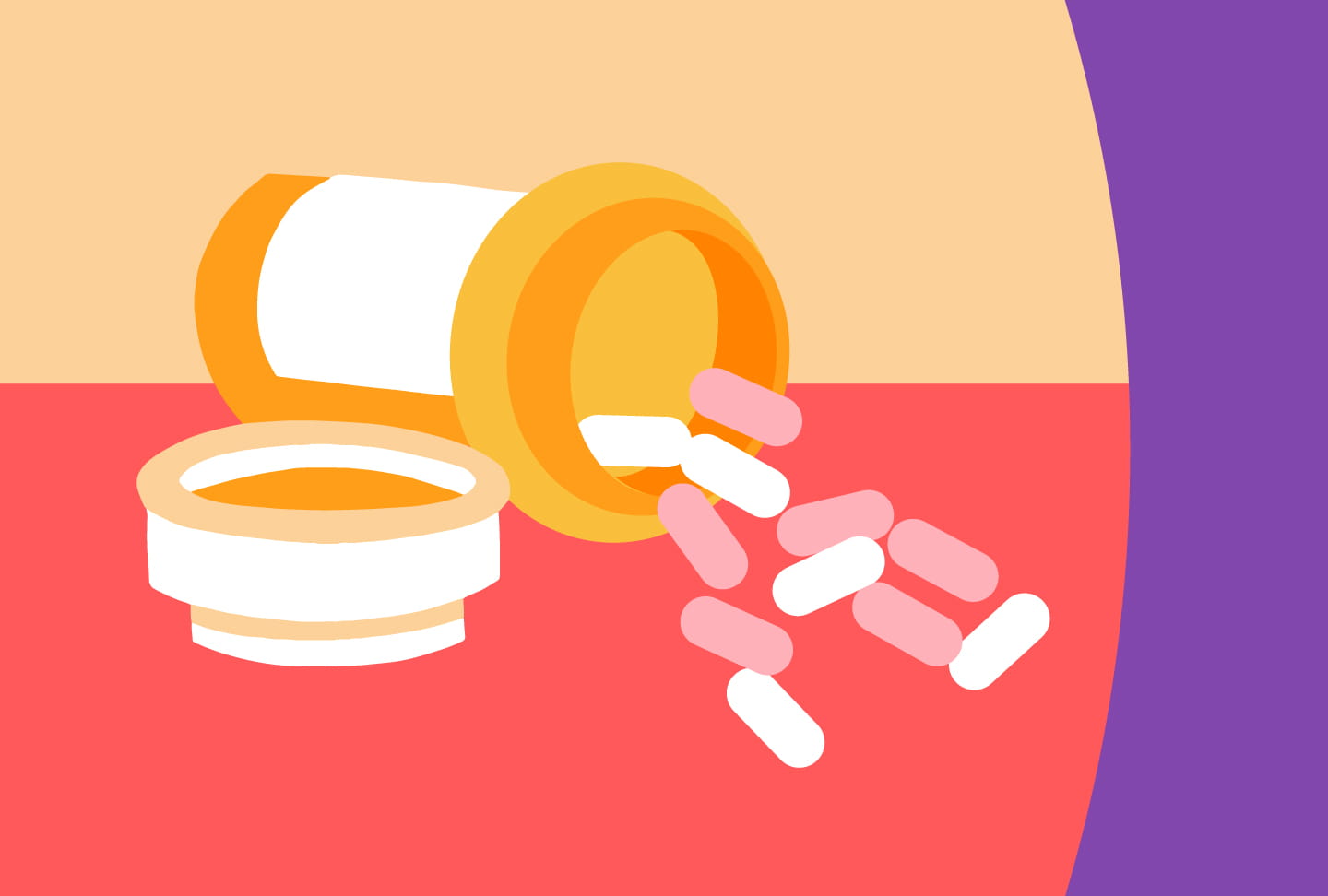Wellstar is committed to keeping our communities safe and healthy amid COVID-19 and beyond.
At this time, it’s important to get the COVID-19 vaccine if you can to help protect yourself and others. Be sure to continue following the 3Ws — wear a mask, wash your hands and watch your distance.
COVID-19 is a respiratory illness. The most commonly reported symptoms are:
- Coughing
- Shortness of breath
- Fever
Other symptoms can include:
- Body aches
- Runny nose
- Sore throat
- Nasal congestion
- Postnasal drainage
- Fatigue
- Diarrhea
“We are finding that 80 percent of COVID-19 cases are mild and can be handled at home,” says Dr. Danny Branstetter, Wellstar Infectious Disease Specialist. “It’s when symptoms worsen and become unmanageable that people will need clinical medical attention. You can also speak with your healthcare provider about potential outpatient treatment, especially if you are a high-risk individual.”
If symptoms get worse, call an emergency department, urgent care, primary care provider or your local health department ahead of time to receive guidance on coming in for testing and treatment.
What happens if you or a loved one gets sick?
The CDC advises that caregivers who have had close contact with a confirmed case or someone under investigation for COVID-19 should closely monitor their own health. If you develop symptoms, call your healthcare provider right away.
Caring for someone at home who is sick
“It’s important to care for a loved one, but do it safely,” says Dr. Branstetter. “While symptoms of COVID-19 are similar to those of the flu or common cold, we have to remember that this is a new virus and we are still learning about it. The highest levels of research are being conducted to combat this disease, so caregivers at home must exercise caution to protect themselves and others.”
When caring for someone at home, the CDC recommends:
- Wash your hands for at least 20 seconds. You can also use hand sanitizer, if available, that contains 60-95% alcohol.
- Avoid touching your face with unwashed hands. Viruses can be transmitted easily through the eyes, nose, and mouth.
- Avoid sharing household items such as dishes, drinking glasses, cups, eating utensils, towels, and bedding with the patient. After the patient uses these items, you should wash them thoroughly with soap and water.
- Clean all frequently touched surfaces, such as doorknobs, bathroom fixtures, toilets, phones, keyboards, tablets, bedside tables, counters and tabletops every day. Also, clean any surfaces that may have body fluids on them. Use a household cleaning spray or wipe, according to the label instructions.
- Wash laundry thoroughly using a normal laundry detergent according to washing machine instructions and dry thoroughly using the warmest temperatures recommended on the clothing label.
- Help the patient follow their healthcare provider’s instructions for medication.
- Provide support for getting groceries, prescriptions and other personal needs, and help with basic household needs.
- Try to stay separated from the patient as much as possible. Stay in another room and use a separate bedroom and bathroom, if available.
- Prohibit visitors who do not have an essential need to be in the home.
- Care for any pets in the home. The person who is sick should not handle pets or other animals while sick.
What to do if you become sick:
Your healthcare provider and public health staff will evaluate whether you can be cared for at home. If it is determined that you can be isolated at home, you will be monitored by staff from your local or state health department. You should follow these steps until a healthcare provider or local or state health department says you can return to your normal activities.
- Stay home except to get medical care. Restrict activities outside your home, except for getting medical care. Do not go to work, school, or public areas. Avoid using public transportation, ride-sharing, or taxis.
- Separate yourself from other people and animals in your home. As much as possible, you should stay in a specific room. Also, you should use a separate bathroom, if available.
- Restrict contact with pets and other animals while you are sick.
- Call ahead before visiting your doctor.
- If you have a medical appointment, call the healthcare provider and tell them that you have or may have COVID-19 to help to keep other people from getting infected or exposed.
- Cover your coughs and sneezes.
- Cover your mouth and nose with a tissue when you cough or sneeze. Throw used tissues in a lined trash can. Immediately wash your hands with soap and water for at least 20 seconds or, if soap and water are not available, clean your hands with an alcohol-based hand sanitizer that contains at least 60% alcohol.
- Clean your hands often with soap and water for at least 20 seconds, especially after blowing your nose, coughing, or sneezing; going to the bathroom; and before eating or preparing food.
- Avoid sharing personal household items.
- You should not share dishes, drinking glasses, cups, eating utensils, towels, or bedding with other people or pets in your home. After using these items, they should be washed thoroughly with soap and water.
- Clean all “high-touch” surfaces every day.
- Monitor your symptoms, including tracking your oxygen levels at home. Patients should seek immediate medical care if their oxygen level is 94 or less, according to Dr. Branstetter.
- When resting, it is helpful to sleep on your stomach.
- Seek prompt medical attention if your illness is worsening. If you have a medical emergency and need to call 911, notify the dispatch personnel that you have, or are being evaluated for COVID-19. If possible, put on a facemask before emergency medical services arrive.
Discontinuing home isolation
- Stay at home until instructed to leave. Patients with confirmed COVID-19 should remain under home isolation precautions until the risk of secondary transmission to others is thought to be low.
- Talk to your healthcare provider. The decision to discontinue home isolation precautions should be made on a case-by-case basis, in consultation with healthcare providers and state and local health departments.
For more information, visit the CDC.gov.





